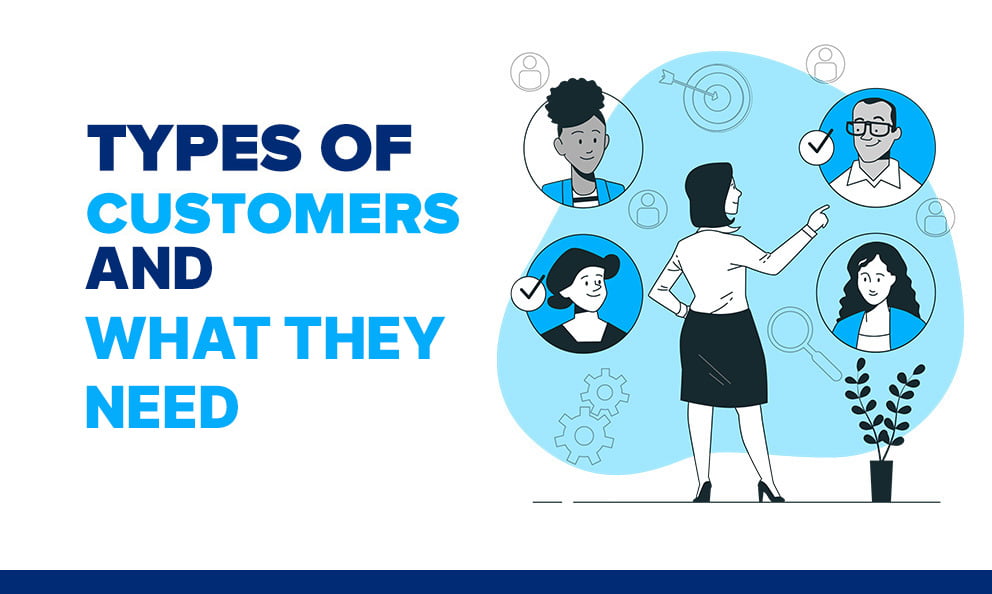Providing exceptional customer support has become a key differentiator for businesses. Customers expect quick and personalized solutions to their queries and issues. To meet these expectations, organizations are turning to Artificial Intelligence (AI) for customer support solutions.
AI technologies, such as Generative AI, have revolutionized the way companies interact with their customers, streamlining support processes, and delivering superior customer experiences.
In this comprehensive guide, we will explore the significance of AI for customer support, its various use cases, how to implement it, the role of Generative AI, and the barriers to overcome for its successful adoption.
Related article: AI in Customer Service: Revolutionizing the Helpdesk with 10 Cutting-Edge Examples
How to Automate AI for Customer Support
1. Data collection: The first step is to collect and organize customer support data, including chat logs, call transcripts, and email interactions. This data serves as the foundation for training AI models to understand customer queries and provide relevant responses. The data should be diverse and representative of different customer interactions to ensure comprehensive AI training.
2. Natural Language Processing (NLP): NLP is a core component of AI for customer support. It enables AI systems to comprehend and interpret customer inquiries in natural language, facilitating accurate and contextually appropriate responses. NLP algorithms should be fine-tuned to handle various languages, dialects, and conversational styles to ensure optimal performance.
3. Training AI models: Using machine learning algorithms, AI models are trained on the collected data to recognize patterns and understand customer intents. The more data the models are exposed to, the better their performance becomes over time. Continuous monitoring of AI model performance and periodic retraining is essential to adapt to changing customer needs and preferences.
4. Integration with support channels: Once the AI models are trained, they can be integrated with various customer support channels, such as live chat, email, social media, and phone support. This integration allows customers to interact with AI-powered bots and receive instant assistance. The AI integration should be seamless and provide a consistent experience across all support channels.
5. Continuous improvement: AI systems should be regularly updated and fine-tuned based on customer feedback and evolving support requirements. Continuous improvement ensures that the AI remains up-to-date and provides accurate responses to diverse customer queries. Regular analysis of customer interactions and feedback helps identify areas for improvement and prioritize AI enhancements.
12 Use Cases of AI in Customer Support
Automated Ticketing
AI-powered ticketing systems have revolutionized the ticket resolution process by automatically categorizing and prioritizing incoming support tickets based on their urgency and complexity. By analyzing ticket data, AI can quickly identify critical issues, ensuring that high-priority tickets are promptly addressed by the appropriate support agents. For example, a telecommunications company using AI for automated ticketing can identify network outages as critical issues and assign them to specialized technicians for immediate resolution, minimizing service disruption and customer dissatisfaction.
Intelligent Routing
With AI’s intelligent routing capabilities, support tickets are directed to the most suitable support agents based on their skills, expertise, and current workload. This ensures that customers receive assistance from agents with the relevant knowledge, leading to quicker issue resolution and improved efficiency. For instance, an e-commerce platform utilizing AI for intelligent routing can route product-specific inquiries to agents with expertise in those particular products, resulting in accurate and specialized responses that enhance the customer experience.
Instant Responses
AI chatbots have become increasingly proficient in providing instant responses to common customer queries. These AI-powered chatbots can address frequently asked questions, offer simple troubleshooting steps, and provide basic information about products or services. For example, a software company employing AI chatbots can respond to customer queries about software installation procedures instantly, providing step-by-step guidance and saving both the customer’s time and the support team’s resources.
Personalized Recommendations

AI can analyze vast amounts of customer data to offer personalized product recommendations and suggestions. By understanding individual preferences, purchase history, and behavior patterns, AI can suggest products or services that align with each customer’s unique needs and interests. For instance, a streaming service using AI-based personalized recommendations can analyze a user’s viewing history and preferences to offer tailored content suggestions, leading to increased user engagement and customer loyalty.
Sentiment Analysis
AI-powered sentiment analysis plays a crucial role in understanding customer emotions and satisfaction levels. By analyzing customer interactions, social media posts, and feedback, AI can detect positive or negative sentiments. Support teams can then respond empathetically to dissatisfied customers, addressing their concerns promptly and turning negative experiences into positive ones. For example, an airline using AI sentiment analysis can identify frustrated customers on social media and engage with them proactively to resolve their issues, ultimately restoring their trust in the airline’s services.
Virtual Assistants
AI-driven virtual assistants have become indispensable in providing 24/7 support without human intervention. These virtual assistants can handle a wide range of customer inquiries, guide users through self-help resources, and even perform tasks like order tracking or appointment scheduling. For instance, a healthcare provider utilizing AI-driven virtual assistants can assist patients in scheduling appointments, providing medical information, and answering frequently asked questions, enhancing patient satisfaction and easing the burden on support staff.
Language Translation
AI’s real-time language translation capabilities break down language barriers in customer interactions, enabling businesses to expand their global customer support capabilities. AI can instantly translate customer queries into the support agent’s preferred language and vice versa, facilitating smooth communication and enhancing customer satisfaction across language-diverse markets. For example, an e-commerce platform leveraging AI language translation can provide customer support in multiple languages, catering to a diverse customer base and broadening its international market reach.
Customer Feedback Analysis

AI can analyze customer feedback from various channels, such as surveys, social media, and email, to identify recurring issues and areas for improvement. By aggregating and interpreting this data, AI provides valuable insights into customer preferences, pain points, and expectations. Armed with this knowledge, businesses can implement targeted improvements to products and services, ultimately enhancing customer satisfaction and loyalty. For example, a hospitality chain using AI to analyze customer feedback can identify common complaints about room cleanliness and take proactive measures to address the issue, leading to improved guest experiences and higher customer retention rates.
Automated Follow-ups
AI-powered systems can automatically send follow-up messages to customers after support interactions. These automated follow-ups ensure that customer issues were adequately addressed and offer an opportunity for customers to provide feedback on their support experience. By maintaining proactive communication, businesses demonstrate their commitment to customer satisfaction and foster stronger relationships with their clientele. For instance, a software company employing AI-powered automated follow-ups can check in with customers after resolving technical issues, ensuring their satisfaction and collecting valuable feedback for continuous improvement.
Knowledge Base Improvement
AI-generated content has proven to be an invaluable resource in enriching an organization’s knowledge base. AI can create and update self-help articles, troubleshooting guides, and FAQs based on customer interactions and support ticket data. This AI-generated content empowers customers to find answers to their queries independently, reducing the reliance on support staff and enhancing overall support efficiency. For example, a consumer electronics company utilizing AI-generated content can continuously update its knowledge base with solutions to common device issues, enabling customers to troubleshoot problems without the need for direct support assistance.
Fraud Detection

AI plays a significant role in safeguarding both businesses and customers from fraudulent activities. By analyzing customer behavior, transaction data, and usage patterns, AI can detect unusual or suspicious activities indicative of fraud.
Early detection allows businesses to take prompt action, issuing a fraud alert to protect their customers and their own reputations from potential financial losses and security breaches. For example, a financial institution employing AI for fraud detection can flag suspicious credit card transactions and alert customers in real time, preventing unauthorized charges and mitigating financial risks.
Predictive Support
Leveraging historical data, AI can predict potential issues or service outages before they occur. By detecting patterns in past incidents, AI can proactively alert support teams about possible challenges, allowing them to take preventive measures. Predictive support minimizes customer impact, reduces downtime, and demonstrates a proactive approach to customer service. For instance, a telecommunications provider using AI for predictive support can identify patterns of network congestion and preemptively allocate resources to prevent service disruptions, ensuring uninterrupted connectivity for customers.
Role of Generative AI in Customer Support
Generative AI, a subset of AI, is rapidly transforming customer support with its ability to create original and contextually relevant content. Generative AI models are trained on vast datasets, allowing them to generate human-like responses and adapt to various situations. In customer support, Generative AI plays a crucial role in enhancing interactions and resolving complex queries.
Generative AI-powered chatbots can engage customers in natural conversations, offering a personalized and seamless experience. These chatbots can understand nuanced language, humor, and sentiment, making interactions more human-like and empathetic. By providing contextually relevant responses, Generative AI ensures that customers feel understood and valued.
Examples of Generative AI in Customer Support:
Smart virtual assistants: Companies deploy Generative AI-powered virtual assistants that handle customer queries 24/7. These chatbots can understand natural language, identify customer intent, and respond with relevant and accurate information. For instance, a virtual assistant for an e-commerce platform can help customers find products, check order status, and process returns seamlessly.

Email response automation: Generative AI is used to automate email responses in customer support. When customers send emails with specific queries or issues, the AI system can generate appropriate responses, saving valuable time for support agents. This technology ensures faster resolution and maintains a high level of customer satisfaction.
Social media customer engagement: Generative AI enables companies to handle a large volume of social media interactions effectively. AI-powered chatbots can identify customer mentions, tags, or direct messages on platforms like Twitter or Facebook. They can respond promptly with personalized messages, addressing customer concerns and inquiries in real time.
Knowledge base expansion: Generative AI can help in creating and updating knowledge bases for customer support teams. By analyzing support interactions and customer feedback, AI models can generate new articles, FAQs, and troubleshooting guides. This process enhances the knowledge base’s accuracy and relevance, enabling customers to find answers to their queries quickly.
Voice assistants for call centers: Generative AI is utilized to power voice assistants in call centers. These virtual agents can understand spoken language, recognize customer emotions, and provide appropriate responses. They can handle a variety of inquiries, such as billing questions, technical support, or product information, delivering a seamless and efficient customer experience over the phone.
AI for Customer Support: Barriers to Overcome
While AI for customer support offers immense potential, several challenges need to be addressed to ensure successful adoption:
Data Privacy and Security
One of the primary concerns in implementing AI for customer support is handling sensitive customer data securely. As AI systems rely on vast amounts of customer information to provide personalized assistance, organizations must prioritize data privacy and protection against potential breaches or misuse. Robust security measures, encryption protocols, and access controls should be in place to safeguard customer data from unauthorized access.
Compliance with relevant data protection regulations, such as GDPR or CCPA, is essential to maintain customer trust and avoid legal repercussions. For instance, a financial institution using AI for customer support must adhere to strict data security standards to protect confidential customer financial information from cyber threats.
Lack of Customer Trust
Customers may be hesitant to interact with AI-powered systems due to concerns about accuracy and reliability. Building trust in AI-based support requires transparent communication with customers about the role of AI in the support process. Clear and honest disclosure that customers are interacting with an AI system and not a human agent helps set appropriate expectations.
Demonstrating successful use cases and tangible benefits of AI in customer support can also alleviate customer apprehensions. For example, an e-commerce platform can showcase how AI-powered chatbots have improved response times and resolved customer queries more effectively, building confidence in the technology.
Integration Complexity
Integrating AI into existing support systems can be complex and may require significant effort in terms of system compatibility and training. AI solutions must seamlessly integrate with various customer support channels, such as live chat, email, and phone support, to ensure a consistent and coherent customer experience. This integration often involves collaboration between IT teams, developers, and AI specialists to ensure a smooth deployment process.

To address integration challenges, organizations should opt for AI solutions that offer robust APIs and pre-built integrations with common customer support platforms. An example of this would be a software company integrating an AI chatbot into its existing support portal, enabling customers to interact with the chatbot directly for quicker issue resolution.
Human-AI Handoff
Ensuring a smooth transition between AI and human support agents is essential to prevent customer frustration and confusion during interactions. While AI can handle routine queries effectively, there are instances where human intervention becomes necessary, especially for complex or emotionally charged issues. The handoff between AI and human agents should be seamless, preserving the context of the customer query to avoid repetition and delays.
This requires careful coordination between AI systems and support agents, ensuring that agents are well-informed about the customer’s interaction with the AI. For instance, a telecommunications company employing AI-powered virtual assistants can smoothly hand over a customer call to a human agent for assistance with billing discrepancies or account-related inquiries.
Ethical Considerations
AI systems must be programmed with ethical guidelines to avoid biased responses or perpetuating harmful stereotypes. Biases in AI models can inadvertently discriminate against certain customer groups, leading to unfair treatment and potential reputational damage for the organization. AI developers and data scientists must rigorously test and audit AI models to identify and mitigate biases before deployment.
Also, organizations should implement policies and procedures for ongoing ethical review and governance of AI systems. For example, an AI-powered chatbot employed by a healthcare provider must be trained to provide unbiased medical advice and avoid recommending treatments based on factors such as gender or race.
Cultural Adaptation
AI for customer support may encounter challenges in adapting to cultural nuances and regional preferences, necessitating careful consideration during implementation. Different cultures may have varying communication styles, etiquette, and norms, which AI systems should be sensitive to in order to provide culturally appropriate responses.
Training AI models on diverse datasets and incorporating local language variants can help ensure that AI-powered interactions resonate with customers from different cultural backgrounds. For instance, an international travel agency utilizing AI for customer support must adapt its chatbot’s responses to align with the specific cultural norms and customer expectations of each region it serves.
Resource Allocation
Investing in AI for customer support requires appropriate resource allocation for training, implementation, and maintenance. Developing and training AI models, integrating them with existing systems, and providing continuous support and updates all demand financial and human resources. Organizations must carefully evaluate the return on investment (ROI) and long-term benefits of AI implementation in customer support. Allocating sufficient budget and expertise to AI projects ensures that they are successful and contribute positively to the overall customer support strategy.
For example, a retail company must allocate resources for AI training and development to ensure that its AI chatbot delivers accurate and relevant responses to customer queries, adding value to the support process.
Related blog: Most Effective Ways to Use Generative AI in Customer Service
Conclusion
AI for customer support solutions has revolutionized the way businesses interact with their customers, delivering enhanced experiences and driving customer satisfaction. By automating AI, organizations can streamline support processes, provide instant responses, and personalize interactions. With Generative AI, customer support becomes more human-like, empathetic, and contextually relevant.
However, to reap the full benefits of AI for customer support, organizations must address challenges related to data privacy, customer trust, integration complexity, human-AI handoff, ethical considerations, cultural adaptation, and resource allocation. By overcoming these barriers, businesses can establish a competitive edge, offering unparalleled customer support experiences and driving customer loyalty in the digital era. Embracing AI for customer support is no longer a luxury but a necessity for businesses that seek to thrive in an increasingly customer-centric market landscape


















